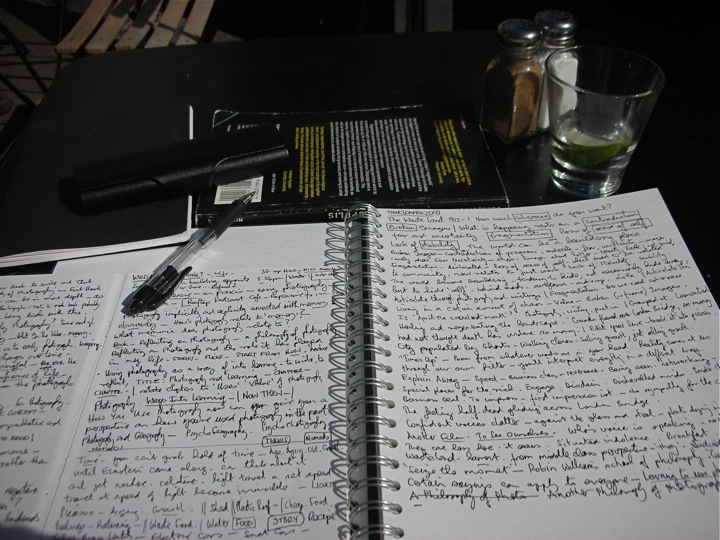This is a very special post and the first of many, I hope. This is a guest post - this article has not been written by me but by one of my students, Maru Talavera. Maru has been a student of English for a number of years now and recently got the opportunity to use her language skills on a trip to England this summer. I was very interested to know her story about what motivates her in her English studies, so I asked her to write this article to share with all of you. I was very happy when she said yes and this is what she provided. Thank you very much, Maru!
Anyway, here are her opinions and her analysis on her passion and enjoyment of English. There are a couple of her ideas that I thought were so good that I highlighted them! Please feel free to give Maru your comments.
Anyway, here are her opinions and her analysis on her passion and enjoyment of English. There are a couple of her ideas that I thought were so good that I highlighted them! Please feel free to give Maru your comments.
Why I like English
While being a student you find many people that ask you “Why do you like English?” However, I think the answer to this question only gets complicated when you ask yourself, “Why do I like English?” As an advanced student I guess I should have figured it out much earlier but considering I’m seventeen it (kind of) makes sense that I haven’t yet.
I took up English because my parents thought I would need it at some point in my life. They were aware of the importance of knowing another language to not only broaden your mind but also push your limits. However difficult the start was I instantly felt comfortable. The atmosphere was wonderful, and by atmosphere I mean the warmth of teachers who – I bet – knew how difficult it can be for a little child to start something new. They made English look like an easy game to play since, as we all know, if you enjoy what you do you give your best.
English also has opened my mind to new perspectives because by reading books or listening to music I realize distances are nothing, we’re all part of the world which turns out to be pretty small as we can feel something similar no matter where we are. For me, English is that bridge that can lead you to see that there are a lot of people who have felt or are feeling in the same way you feel.
Further to the points I highlighted before, English is considered to be the lingua franca (language people use to communicate when they have different first languages) and companies which are trying to make it to worldwide success are looking for people that have English among their various skills since it’s a great way to enter other markets.
 |
| Photo from Wikipedia |
Nowadays, English doesn't belong to one place, it’s everybody’s world language. And I think it would be great if it were taught to children as they’re little because it’s the best time to learn as it’s easy.
Having English as a lingua franca doesn’t mean we have to have an English lifestyle as well. This is the best of it, we can have a mixture... making our culture evolve in a different way, acquiring new things but preserving out essence. It’s all about opening our minds and trying to see that others are not that different and that we can get to know them better if we share a common language.
Other ways of learning English
As I grow up (Yes! I’m still at it!) I discover that it’s not always easy to keep on working on my English as I have less time to study but in a way this has helped me realize there are fantastic ways to learn, improve and use your English.
- Watching series or films online: the Internet can be something more than just a way to gossip or keep up with Hollywood trends, it can also be a place to catch up with your favourite series or movie. At times it’s hard to understand the dialogues so I suggest starting with series you are familiar with, and it’s great when you add the subtitles so that you know exactly what they’re saying. Free online films and series are available online and you don’t need to be registered. (Gordon's Note: I agree with this idea and I know there are some free films online but also remember that iTunes is a great and legal way to do this get movies and TV shows.)
- Reading from books to magazines, you will find a wide range of useful vocabulary and phrases. Although sometimes it seems difficult to get an English book in a country like Argentina it is not impossible, indeed there are several bookshops where you can get them. There’s also the possibility to download the book you want from the net. (Gordon's Note: I love my Amazon Kindle and you can also get Kindle apps for computers and smartphones.)
- Music: I think this is my favourite way of learning English. There’s nothing better than listening to a good album with meaningful lyrics.
To sum up, I would say English has a very important place in my life. Indeed, I can’t imagine my life without it and I think the world helps that. I like having it in my life since I have developed a kind of love for English because it has made me discover a whole new world that has always been there but I didn’t have the key to enter. This tool also leads me to independence and sharing my knowledge, feelings and ideas with people from all over the world. When I went to London this July, English also helped me to make friends with people who were foreigners just like me, who were also still unsure and adjusting in a different country and we ended up creating a bond which I hope will continue to grow day by day.
During my life I’ve encountered people who encourage me every day to go on in this way, learning around the things I enjoy is certainly the easiest way to progress. On the other hand, I also find people who try to bring me down, saying that no matter how hard I try it is pointless to try to acquire another culture that’s not mine. However, as with many things in life, it is important to follow the way you think will make you happy, because none of the people who discouraged you will come to repair the damage of having made a bad choice. People that think English is boring, unnecessary or just a waste of time is because they don’t know, they have no idea of the vast world that hides beyond their ignorance.



























